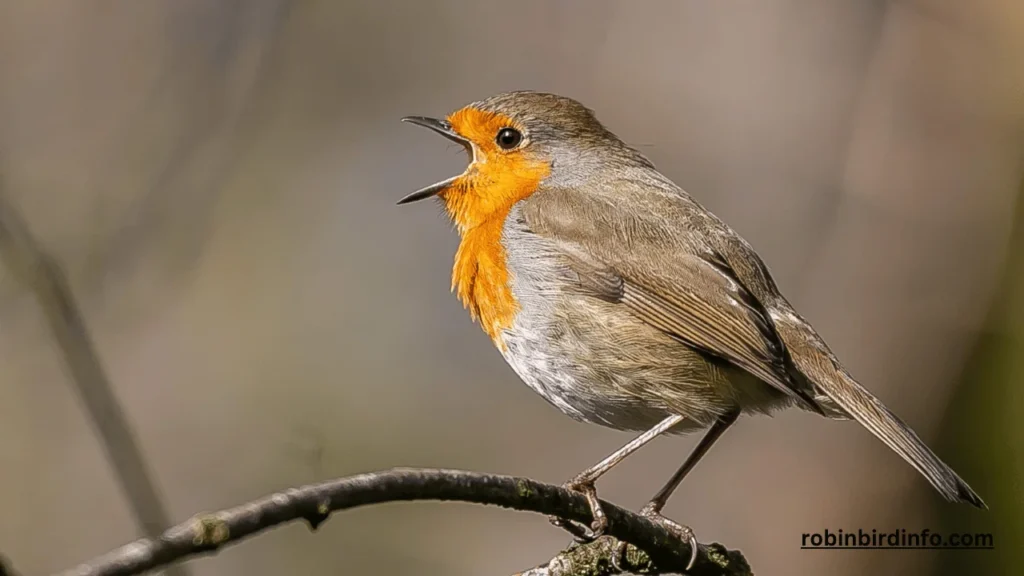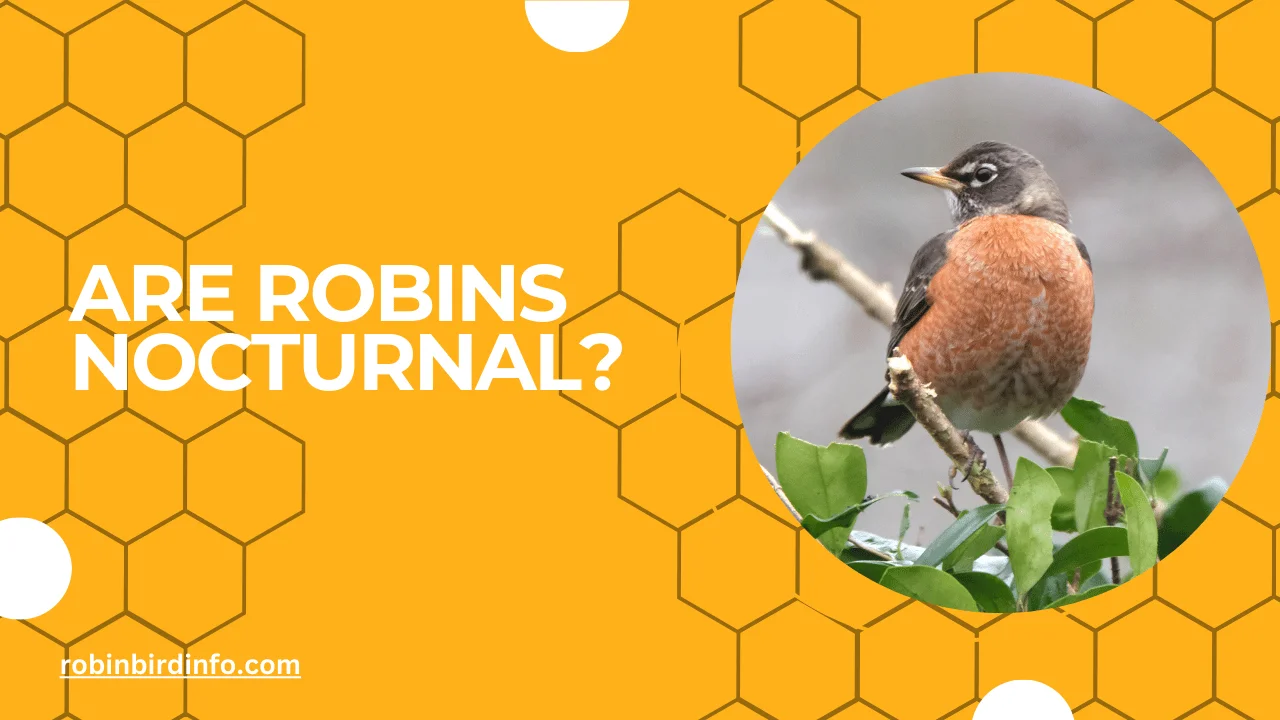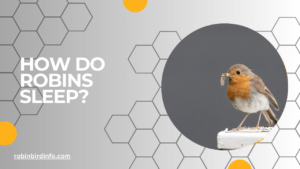Ever watch a robin flitting through your backyard, its cheerful song a welcome sound?
You might picture them as peaceful creatures, content with a juicy worm and a cozy nest. But look closer! These seemingly harmless birds can erupt in a surprising display of aggression, puffed-up chests and all, to chase away rivals. But does this territorial behavior extend beyond the daylight hours?
Are robins secretly nocturnal, venturing out under the cloak of darkness for who-knows-what robin-related mischief?
Unraveling the mystery of a robin’s nighttime activities is more than just satisfying idle curiosity. Understanding their habits, both day and night, can help us better appreciate these feathered neighbors. After all, if robins are indeed nocturnal, it might change how we interact with them in our own backyards.
So, settle in, grab a cup of your favorite evening beverage (because hey, maybe robins enjoy a nightcap too?), and let’s delve into the fascinating world of robins, both by day and, potentially, by night.
Contents
Section 1: Defining Diurnal and Nocturnal
Diurnal Animals: Diurnal animals, like Robins, are active during the day. They have adaptations for daytime activity, such as well-developed eyesight and color vision.
Nocturnal Animals: Nocturnal animals, such as owls, are active at night. They have adaptations for nighttime activity, such as keen night vision and sensitive hearing.
Section 2: Robin Behavior and Activity Patterns
Diurnal Activity: Robins are primarily diurnal. They are most active during daylight hours, foraging for food, building nests, and defending their territories.
Rest and Sleep: Robins typically roost at night, often in trees or dense shrubs. They spend several hours each night sleeping to conserve energy and rest.
Nocturnal Exceptions: While Robins are primarily diurnal, there may be rare instances of nocturnal activity, particularly during extreme weather conditions or when disturbed. However, this is not typical behavior.
Section 3: Physiological Adaptations for Diurnal Activity
Visual System: Robins have well-developed eyes with cones, which are specialized cells that allow them to see color. This adaptation is essential for foraging, finding mates, and navigating their environment.
Circadian Rhythm: Robins, like many other animals, have an internal biological clock called a circadian rhythm. This rhythm regulates their sleep-wake cycle, ensuring that they are active during the day and sleep at night.
Section 4: The Impact of Artificial Light
Disrupted Sleep Patterns: Artificial light at night can disrupt the natural sleep patterns of Robins, leading to sleep deprivation and other health problems.
Reduced Foraging Time: Artificial light can also reduce the amount of time that Robins spend foraging for food, as they may be more active at night when food is less abundant.
Increased Predation Risk: Artificial light can attract predators, such as cats and owls, which can pose a threat to Robins.
Section 5: Conservation Implications

Habitat Loss and Fragmentation: The loss and fragmentation of natural habitats can impact Robin behavior and ecology. It can reduce the availability of suitable nesting and foraging sites, as well as disrupt their migration patterns.
Light Pollution: Light pollution can have a negative impact on Robin populations by disrupting their natural sleep patterns and increasing predation risk.
Conservation Strategies: To protect Robin populations, it is important to minimize light pollution, conserve natural habitats, and promote bird-friendly practices.
Conclusion
Robins are primarily diurnal birds, well-adapted to daytime activity.
While they may occasionally be active at night under certain circumstances, their primary activity period is during daylight hours. Understanding their diurnal nature and the factors that influence their behavior is essential for their conservation and appreciation.
By minimizing light pollution and protecting their habitats, we can ensure the continued survival of these beloved birds.
FAQ’s
Why do Robins sing in the morning?
Robins sing in the morning to establish territory and attract mates. Their songs are a way to communicate and defend their breeding grounds.
Are Robins aggressive?
While Robins are generally peaceful birds, they can become aggressive, especially during the breeding season. They may exhibit territorial behavior, such as chasing away other birds or dive-bombing perceived threats.
Do Robins migrate?
Many Robin populations migrate south for the winter, while others may remain in milder climates year-round. The extent of migration varies depending on the specific population and geographic location.
What do Robins eat?
Robins are omnivorous, meaning they eat both plant and animal matter. Their diet includes insects, worms, berries, and fruits.
Where do Robins build their nests?
Robins build their nests in a variety of locations, including trees, shrubs, and on buildings. They often choose sheltered sites that are protected from the elements.
How long is the incubation period for Robin eggs?
The incubation period for Robin eggs is typically around 12-14 days. Both male and female Robins share the responsibility of incubating the eggs.








